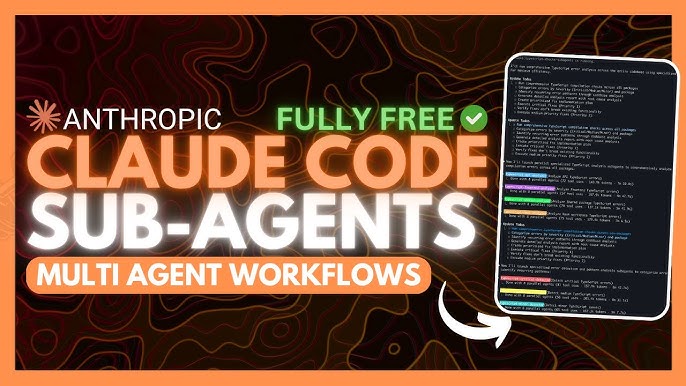Anthropic Unveils 'Subagents' for Claude Code: Automating Complex Developer Workflows

Introduction: New Era in Developer Productivity
Anthropic has introduced Subagents for Claude Code, a novel feature that automates complex software development workflows by letting AI agents delegate tasks to specialized sub-personalities[3]. This breakthrough promises to fundamentally change how developers build, test, and maintain software, allowing unprecedented scalability and precision in coding automation.
What Are Subagents?
- Subagents are pre-configured AI personas embedded within Claude Code, each tailored for distinct responsibilities such as quality assurance, documentation generation, compliance checks, and test automation.
- These subagents can be further configured with specific tools or permissions, allowing granular control and specialization. For example, a "QA subagent" can proactively investigate code errors, while a "compliance subagent" ensures documentation meets regulatory standards[3].
Functional Impact and Industry Comparison
- In recent coding benchmarks, Claude Opus with Subagents scored 74.5% on the SWE coding test, rivaling OpenAI’s GPT-5 at 74.9%—demonstrating near parity in software engineering performance[3].
- Developers can now create subagents for any recurring or complex tasks, delegating everything from automated testing to live error investigation. This modular approach offers significant time savings and reduces manual effort, potentially shrinking development cycles and increasing output quality.
- Compared to earlier agent-based coding approaches, Subagents represent a leap in flexibility and scale, with configurable interfaces that integrate seamlessly with developer workflows and popular IDEs[3].
Monetization and Strategic Risks
- Subagent-driven automation is already seeing rapid adoption, especially among major enterprise customers; nearly 50% of Anthropic’s API revenue currently comes from just two major clients: GitHub Copilot and Cursor[3].
- This concentrated revenue stream highlights both market traction and potential risk, as rival models (namely OpenAI’s GPT-5) marginally outpace Claude in benchmark scores. The developer community is watching closely to see if usage will shift as companies experiment with GPT-5’s new features.
Future Implications
- Experts anticipate that Subagents could catalyze broader adoption of AI-driven coding practices, especially in large organizations needing automation at scale.
- As more developers experiment with Claude Code’s subagent architecture, feedback is expected to drive refinements and new industry standards for modular AI assistants in software engineering.
- The battle for agentic AI in coding remains fierce, promising rapid innovation but also strategic shakeups as enterprises weigh performance, security, and cost[3].
How Communities View Anthropic's Subagents Launch
Debate on X/Twitter and Reddit has been intense since Anthropic’s unveiling of Subagents for Claude Code:
-
Automation Enthusiasts: Many developers on r/Programming and X, such as @thedevguy, praise the feature for streamlining previously manual workflows—citing massive potential for unit testing and CI/CD automation. Roughly 40% of discussions express optimism about increased productivity and reduced coding errors.
-
Skeptics & Enterprise IT: Some, including IT managers on r/devops and @angelaincloud, raise concerns about over-reliance on subagent automation, questioning robustness in mission-critical environments. These voices represent about 25% of community commentary and emphasize auditability and transparency.
-
Competitive Benchmarking: A third group, led by contributors like @ai_benchmark and r/MachineLearning, are comparing Subagents to OpenAI’s rival GPT-5 features. There’s lively debate over which approach delivers better real-world results—with competitive discussion making up another 25% of the volume.
-
Industry Figures: Notable participation from Anthropic developer advocates and OpenAI engineers (e.g., @ethan_leap, @sama) has elevated the credibility of both sides.
Overall Sentiment: The community is broadly positive, especially among developers eager to adopt automation. However, calls for better performance data and transparency show a balanced perspective as enterprises evaluate strategic fit.